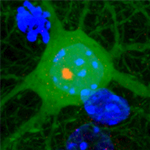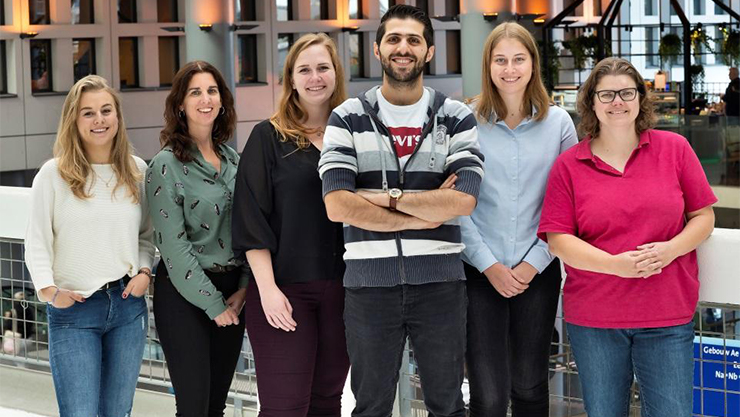About our research group/lab
Our research
Background information
Our group works on understanding the role of expanded nucleotide repeats in neurological disorders, with the main focus on the CGG repeat in the FMR1 gene. We study the underlying gain-of-function mechanisms of FXTAS and apply the knowledge gained from our cellular and animal models to develop targeted therapeutic interventions.
Overall aim
The overall aim of our research is to understand the molecular processes involved in disease pathology and to develop strategies to intervene in these processes. We can study FXTAS in several state-of-the-art in vitro and in vivo models. Together with our (international) collaborators we use these models in our quest for a targeted therapeutic intervention for FXTAS.

Research focus areas
Our group disposes of several state-of-the-art in vitro and in vivo models to study FXTAS, including primary neuron cultures, several mouse models (knock-in, transgenic, inducible), zebrafish and C.elegans models.

Key Publications
Collaborations
Collaboration within Erasmus MC
- Klinische Genetica
Collaboration outside of Erasmus MC
- Matt Disney, Scripps Institute Florida, USA.
- Nicolas Charlet-Berguerand, IGBMC, Strasbourg, France.
- Gian Tartaglia, Gene function & Evolution, CRG Barcelona, Spain.
- Vered Raz, department of human genetics, LUMC, Leiden, the Netherlands.
- Gert Jansen, department of Cell Biology, Erasmus MC, Rotterdam, the Netherlands.
- Oliver Stork, Department of Genetics and Molecular Neurobiology, Institute of Biology, Otto-von-Guericke University, Magdeburg, Germany.
- Krzysztof Sobczak,Department of Gene Expression, Institute of Molecular Biology and Biotechnology, Adam Mickiewicz University, Poznan, Polan.
Our team

From left to right: Robin Dirks (BSc student), Lies-Anne Severijnen (technician), Renee van Buuren (BSc student), Saif Haify (PhD student), Valerie Boumeester (BSc student), Renate Hukema (PI).